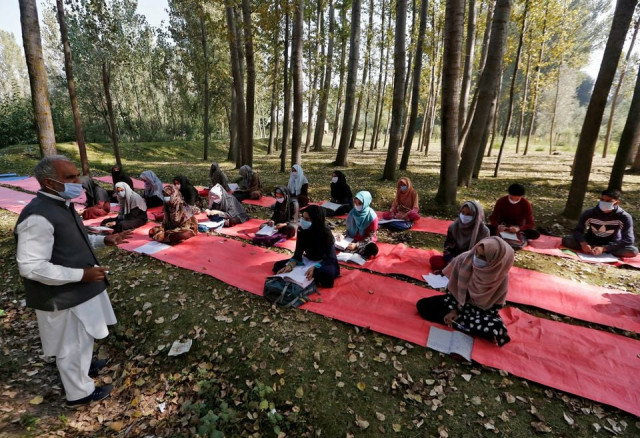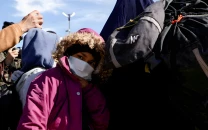Remote learning is setting back millions of South Asian children: UNICEF
'Even when a family has access to technology, children are not always able to access it'

Hundreds of millions of children in South Asian are suffering because their schools have been closed because of the coronavirus but they lack online devices and connections for remote learning, UNICEF said on Thursday.
Authorities should prioritise the safe reopening of schools because even before the pandemic, almost 60% of children in the densely populated region were unable to read and understand a simple text by the age of 10, the UN children's agency said.
"School closures in South Asia have forced hundreds of millions of children and their teachers to transition to remote learning in a region with low connectivity and device affordability," said George Laryea-Adjei, UNICEF's regional director for South Asia.
"Even when a family has access to technology, children are not always able to access it. As a result, children have suffered enormous setbacks in their learning journey."
The repeated school closures since last year had affected 434 million children in South Asia and a substantial proportion of them were learning significantly less compared with pre-pandemic levels, UNICEF said in a report based on research in India, the Maldives, Pakistan and Sri Lanka.
In India, 80% of children aged 14-18 reported lower levels of learning than when physically at school. In Sri Lanka, 69% of parents of primary-school children said that their children were learning less or a lot less.
Read More: UNICEF, Facebook promote immunisation
In Pakistan, 23% of younger children did not have access to any device for remote learning. In India, 42% of children between the ages of 6 and 13 reported no remote learning during school closures.
"The safe reopening of schools must be considered an utmost priority for all governments," said George Laryea-Adjei.
Indian epidemiolgists and social scientists have asked authorities to reopen classes for all children, saying the benefits outweigh the risks, especially as poor, rural children are missing out on online education.
South Asia, with nearly 2 billion people, has reported more than 37 million coronavirus infections and more than 523,000 deaths.



















COMMENTS
Comments are moderated and generally will be posted if they are on-topic and not abusive.
For more information, please see our Comments FAQ